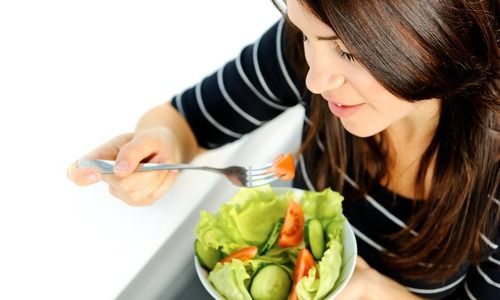More Americans Are Eating Alone, And May Be Harming Their Health In The Process

Given that 27 percent of today’s households are made up of a single person, over 50 percent of Americans today are eating alone, according to a report from the global information company NPD.
To break it down by meal, NPD found 60 percent of Americans eat alone for breakfast, 55 percent for lunch, 32 percent for dinner, and 70 percent for snacks — though, the idea of solo snacks doesn’t strike us as a bad thing. The less people watching us polish off a jar of peanut butter, the better.
“The number of solo eating and beverage occasions have wide-ranging implications for food and beverage marketers in terms of new products, packaging, and positioning,” Darren Seifer, NPD food and beverage industry analyst, said in a press release. “As lifestyles shift, it’s key for marketers to profile and segment occasions when their product is consumed in various ways, including solo versus social occasions, in order to connect most effectively with consumers.”
What does science have to say about this? It’s both good and bad. Not eating with friends or co-workers could ensure healthier food choices, according to a study analysis published in the Journal of the Academy of Nutrition and Dietetics. Researchers found when participant’s knew what another participant was getting to eat, either a high- or low-calorie choice, they were more likely to have what they were having.
"The evidence reviewed is consistent with the idea that eating behaviors can be transmitted socially," Dr. Eric Robinson, lead study author, said in a press release. "Taking these points into consideration, the findings of the present review may have implications for the development of more effective public health campaigns to promote 'healthy eating.' Policies or messages that normalize healthy eating habits or reduce the prevalence of beliefs that lots of people eat unhealthily may have beneficial effects on public health."
Yet, a separate study from the European Prospective Investigation of Cancer found that the “lonely nature” of solo dining negatively affects adults over the age of 40, resulting in them eating fewer vegetables per day than their coupled counterparts.
We get it: eating alone is often a result of circumstance. Solitude is even healthy in its own right. But so is social connection. A slew of science has found social connection can help to alleviate depression, boost the brain, as well as longevity.
The solution is to strike the right balance between eating alone and eating in a crowded bar for a quality happy hour with other people. Or someplace other than a bar. You get the point.



























